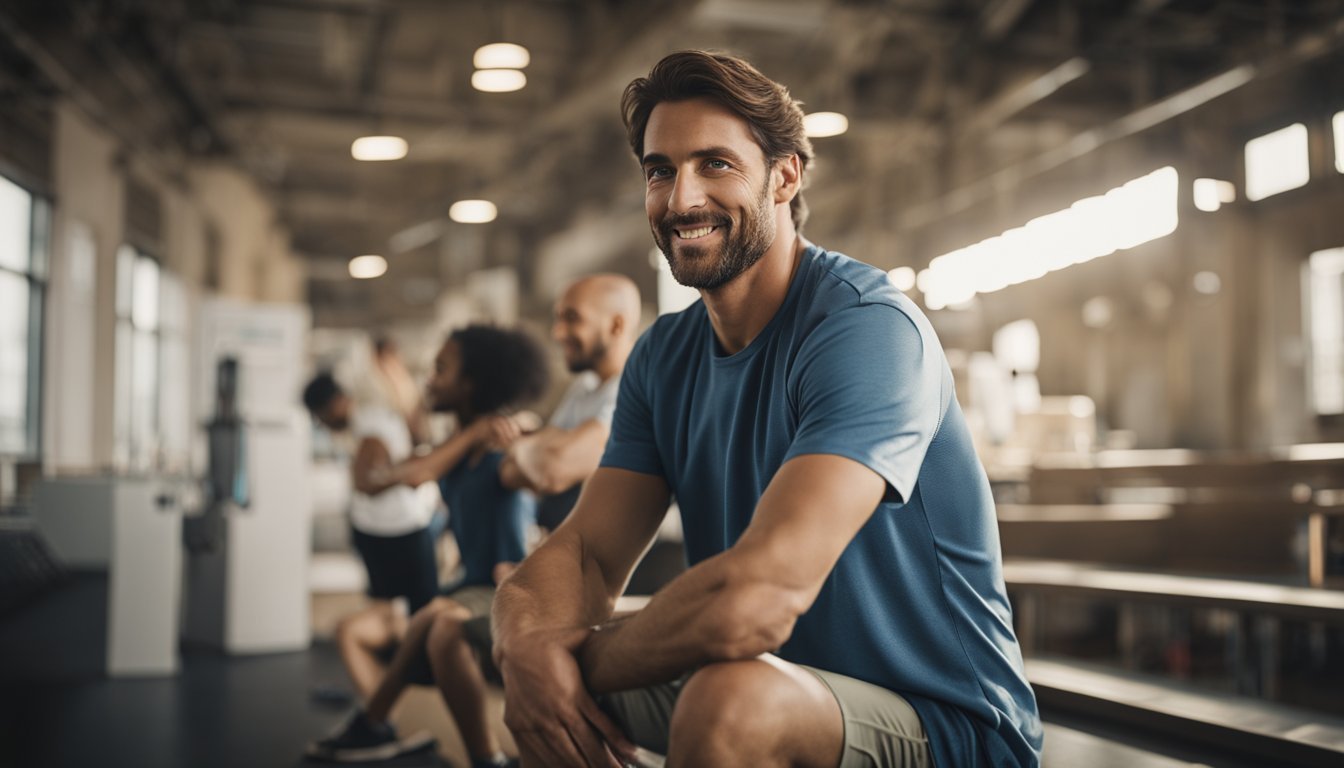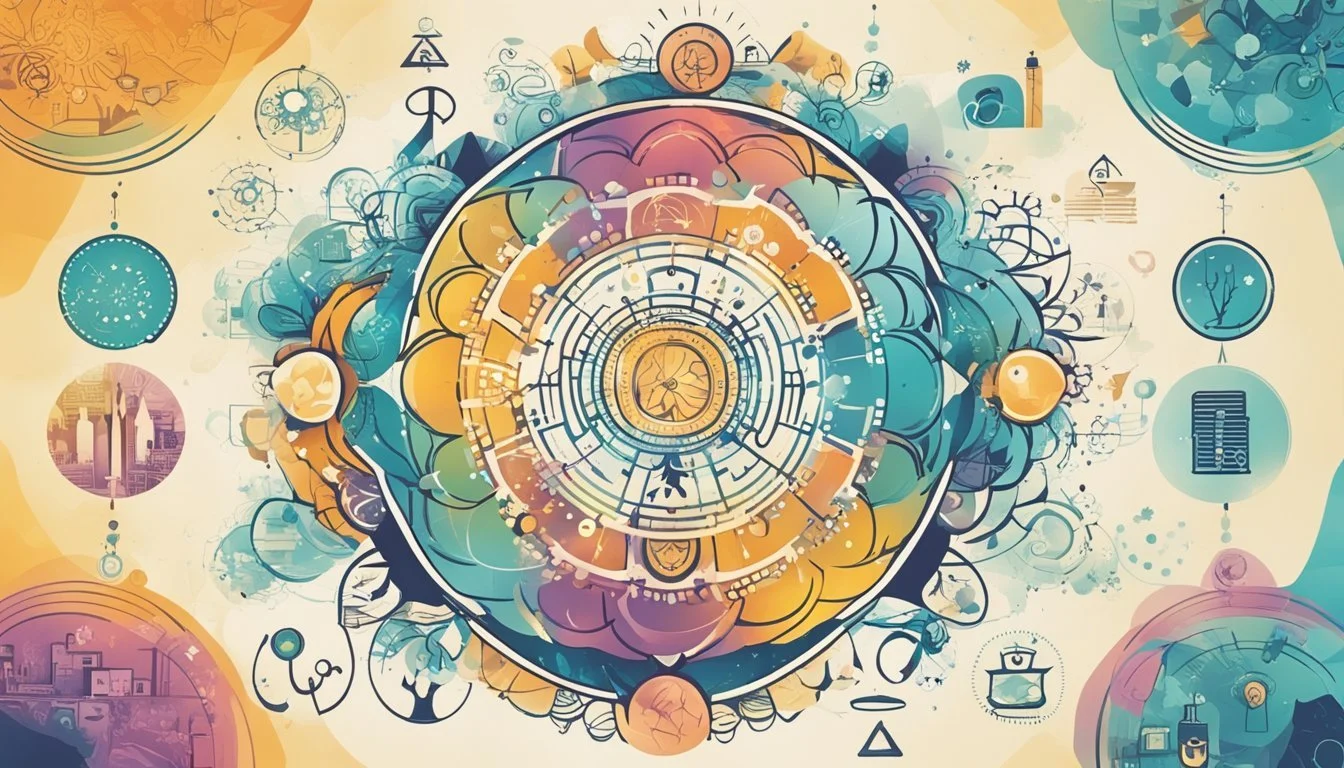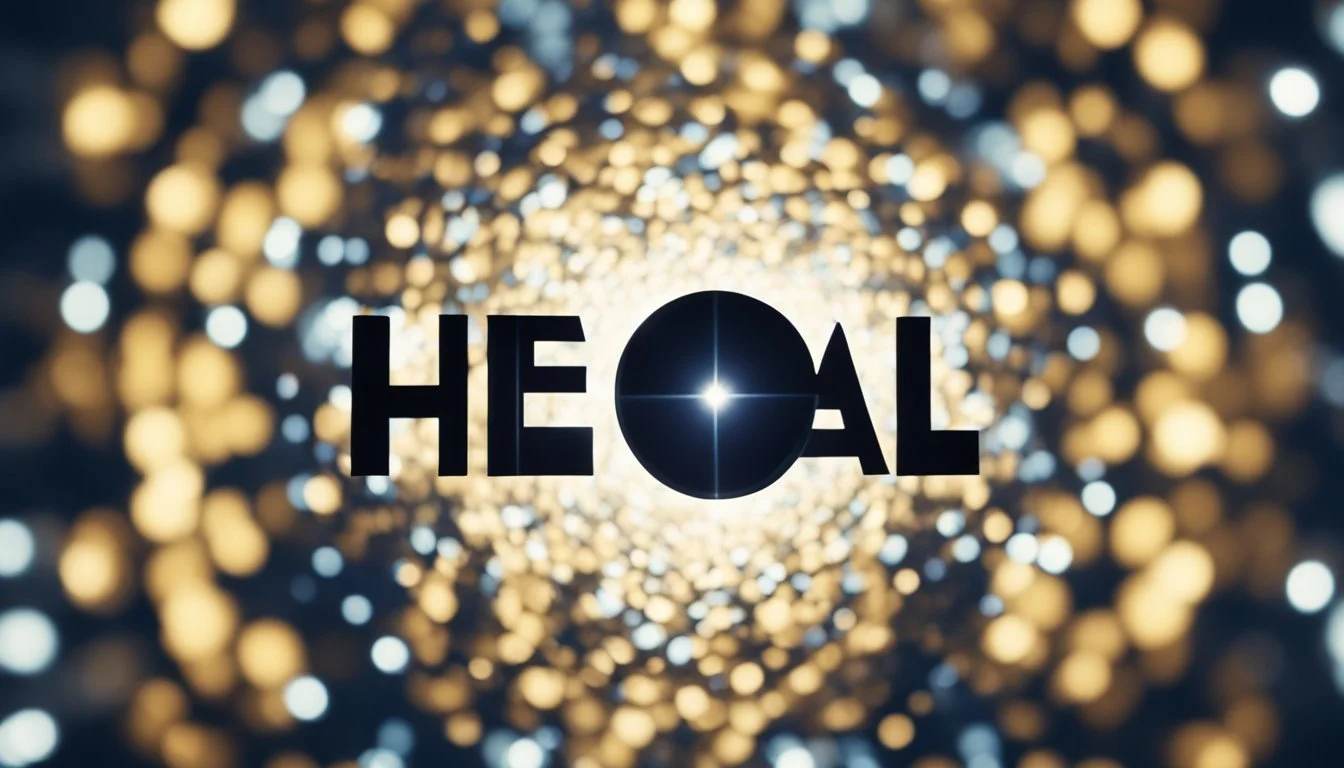Heal (2017) Review
Uncovering the Power of Holistic Healing
In the realm of health and wellness, "Heal" (2017) is a transformative documentary that captivates audiences by delving into the science behind healing. Directed by Kelly Noonan Gores, the film explores the mind-body connection and delves into the importance of taking responsibility for our wellbeing. With an array of interviews, personal stories, and expert insights, "Heal" provides a glimpse into alternative healing modalities and approaches to medicine that have gained traction in recent years.
The documentary sets out to investigate the potential impact of our thoughts, beliefs, and emotions on our health. By interviewing a diverse selection of medical experts, scientists, and holistic practitioners, the film uncovers valuable insights into the power of our minds and various healing modalities. These experts present evidence on various facets of the mind-body connection, with a focus on stress reduction, self-awareness, and lifestyle management.
Through compelling narratives, "Heal" demonstrates the significance of understanding our mental and emotional states in our quest to restore and maintain our health. It is an eye-opening resource for anyone interested in taking an active role in their healing journey or enhancing their understanding of holistic approaches to wellness. Overall, the film offers a thought-provoking perspective on the potential of the human body to recover, rejuvenate, and overcome challenges without relying solely on conventional medical treatments.
Background Information
The Film's History
Heal (2017) is a documentary film directed by Kelly Noonan Gores. It explores the concept of self-healing and the power of the human mind in overcoming physical ailments. The film features interviews with prominent figures in the fields of science, medicine, and alternative healing techniques. The documentary presents a balanced view, providing insights into both conventional and alternative healing approaches, helping the audience make informed decisions about their own healthcare journey.
Production
The production of Heal began in 2015, with a crowdfunding campaign to gather funds for the project. The film has been well-received by audiences and critics alike for its clear, concise presentation of complex concepts. It features expert interviews and testimonials from individuals who have experienced the transformative power of self-healing. The documentary includes visuals, animations, and graphic representations to help convey the information in an engaging and easily digestible manner.
The documentary Heal sheds light on various healing modalities and encourages viewers to take charge of their own wellbeing.
Plot Summary
The documentary Heal (2017), directed by Kelly Noonan Gores, explores the idea of the mind-body connection and its impact on health and wellness. The film features interviews with various experts in the field, as well as personal stories from individuals who have experienced the healing power of the mind.
At the beginning of the documentary, the viewers are introduced to the concept of the mind-body connection through interviews with scientists, spiritual leaders, and medical professionals. These experts discuss how the latest science reveals the connection between thoughts, emotions, and physical health.
In addition to expert interviews, Heal presents the personal stories of several individuals who have used the power of their minds to transform their health. These stories serve as a testament to the potential impact of the mind-body connection on overcoming illness and promoting overall well-being.
Throughout the documentary, viewers are also exposed to information about various alternative healing modalities that can be utilized to support the mind-body connection. Some of these modalities include meditation, energy healing, chiropractic care, and visualization techniques.
By combining expert opinions, personal stories, and information about alternative healing methods, Heal (2017) aims to educate its audience about the importance of recognizing and nurturing the mind-body connection as a means to achieving optimal health.
Critical Analysis
Positive Reviews
The Heal documentary reviews from viewers and critics alike have been positive. Many people have praised the film for exploring how the powers of the mind, thoughts, and emotions can play a significant role in our overall well-being and recovery from illnesses.
Expert perspectives: The documentary features interviews with a range of experts, including scientists, spiritual leaders, and wellness practitioners. These experts share their knowledge of mind-body connections and the importance of a holistic approach to health.
Personal stories: Heal also showcases inspiring personal stories of patients who have overcome significant health challenges by embracing alternative healing methods and mind-body practices that complement conventional medical treatments.
Awareness: Viewers have found value in the film's message of raising awareness about the significant role that emotional and psychological factors can play in the body's ability to heal itself.
Negative Reviews
While Heal has been well-received by many, some viewers and critics have taken issue with certain aspects of the film.
Lack of scientific evidence: Critics argue that some of the alternative healing methods and mind-body practices explored in the documentary lack rigorous scientific evidence to support their effectiveness. They worry that promoting these therapies may lead people to forgo proven medical treatments.
Anecdotal evidence: The documentary relies heavily on personal stories to make its points. While these stories can be inspiring, critics argue that anecdotes can be misleading and do not establish any causal relationships between specific practices and outcomes.
Potential for victim-blaming: Some viewers felt that the documentary's focus on the connection between thoughts, emotions, and health could inadvertently suggest that those who are sick or suffering are somehow responsible for their ailments because of their negative thinking or emotional issues.
Subject Profiles
"Heal" (2017) is a documentary that explores the power of the mind and its connection to the body's ability to heal. Throughout the film, various individuals share their stories as they work to overcome chronic illnesses using a combination of alternative medicine and mind-body practices. This section provides a brief overview of some of the profiled subjects in the documentary.
Kelly Turner, Ph.D.: Kelly is a researcher and author of the book "Radical Remission: Surviving Cancer Against All Odds." She examines cases of individuals who have experienced miraculous recoveries from cancer after turning to alternative practices. In the documentary, Kelly discusses her work on the nine key factors that can lead to a "radical remission" of cancer.
Dr. Bruce Lipton: A renowned cellular biologist, Dr. Lipton believes that our environment, perceptions, and beliefs can affect our cells and genetics. His work focuses on epigenetics and the influence of the mind on physical health. He explains how a change in mindset can alter one's state of well-being and promote healing.
Dr. Deepak Chopra: As a leader in the field of mind-body medicine, Dr. Chopra emphasizes the importance of meditation and mindfulness in maintaining health and well-being. He shares his insights on the connection between our thoughts and physical health, as well as the potential for self-healing through mental practices.
Rob Wergin: As an energy healer, Rob works with individuals suffering from chronic conditions, helping them tap into their body's innate healing abilities. He employs a variety of practices, from hands-on healing to guided meditations. Several of his clients are featured in the documentary, offering testimonials of their experiences and recoveries.
Anita Moorjani: Following a near-death experience brought on by terminal cancer, Anita transformed her life and survived after accepting her worth and the interconnectedness of all aspects of life. She shares her story in the documentary and advocates for the power of love, surrender, and self-acceptance in the healing process.
In addition to these individuals, "Heal" (2017) features numerous other experts, healers, and individuals who have experienced or witnessed the transformative power of mind-body practices in overcoming illness and fostering well-being. Their contributions offer valuable perspectives on the untapped potential of the human mind in the quest for improved health.
Healing Concepts
Mind-Body Connection
The mind-body connection plays a significant role in the process of healing. This concept suggests that our thoughts, feelings, beliefs, and attitudes can positively or negatively affect our physical health. Research has shown that individuals with a positive mindset tend to experience better health outcomes. Practices such as meditation, mindfulness, and stress reduction techniques are known to improve the mind-body connection and support overall healing.
Natural Healing Methods
Natural healing methods are an essential component of the documentary Heal (2017). These methods emphasize the body's innate ability to heal itself and often involve non-invasive techniques. Some examples of natural healing methods include:
Acupuncture: An ancient Chinese practice that stimulates specific points on the body using thin needles to restore balance and promote healing.
Herbal medicine: The use of plants and herbs to treat various ailments and support overall health.
Massage therapy: A hands-on technique that involves manipulation of soft body tissues to help alleviate pain, reduce stress, and improve circulation.
These methods, along with other natural healing practices, aim to address the root causes of illness rather than just treat symptoms.
Impact of Environment
The environment we live in can have a direct impact on our healing process. Exposure to pollutants, toxins, and other harmful substances may contribute to poor health and impede our body's ability to recover. On the other hand, surrounding ourselves with a clean, supportive, and nurturing environment can promote optimal healing.
Factors such as air and water quality, a balanced diet, and access to natural light are examples of environmental aspects that can influence our well-being. Therefore, it is important to be mindful of the environment and make necessary adjustments to encourage a healthy and healing lifestyle.
Impact on Society
The documentary "Heal" (2017) has had a significant impact on society, shedding light on the power of the mind-body connection and alternative healing therapies. It has encouraged individuals to explore various approaches to health, wellness, and self-healing. The film provides insights from medical professionals, spiritual leaders, and individuals who have experienced the life-changing effects of these methodologies.
One major influence of the documentary is its role in popularizing mindfulness and meditation. These practices have become more widely accepted and utilized thanks to the film's exploration of their healing potential. Many people have turned to these practices for stress relief, mental clarity, and emotional balance, which can ultimately impact overall health and well-being.
The film also brought attention to the idea of "energy medicine" and the role it can play in healing. Modalities such as Reiki, acupuncture, and healing touch have garnered increased interest and acceptance as people seek non-invasive treatments to complement traditional medical care.
Furthermore, "Heal" has generated discussions around the importance of the environment and its influence on health. It highlights how our surroundings can impact our mental and emotional states, which in turn can manifest in our physical health. As a result, more individuals are considering factors like air quality, Wi-Fi exposure, electromagnetic fields, and noise pollution in their pursuit of wellness.
In summary, the documentary "Heal" has made a notable impact on society by bringing awareness to the mind-body connection, alternative healing modalities, and the role of environmental factors in our overall health. It has inspired many to explore these topics further and incorporate different approaches into their own personal health journeys.
Conclusion
Heal (2017) effectively explores the power of the mind-body connection in promoting healing and well-being. Through engaging interviews with leading experts and inspiring and emotional stories, the documentary demonstrates the importance of understanding this connection to maintain good health or recover from illness, injury and a scary prognosis.
One of the notable aspects of Heal is its interdisciplinary approach to the subject. By combining perspectives from neuroscience, psychology, spirituality, and alternative medicine, the documentary provides a comprehensive overview of how individuals can harness the power of their thoughts, emotions, and beliefs to enhance their physical health.
However, it is essential to remain cautious and balanced with the claims made in the documentary, as some may not be universally supported by scientific research. Acknowledging that the mind-body connection is an ongoing area of study, the documentary should serve as a starting point for people interested in learning more and incorporating elements of it into their lives.
In summary, Heal (2017) is a thought-provoking and compelling exploration of the mind-body connection and its potential for transformative effects on health and well-being. While remaining critical about certain claims, the documentary has the potential to inspire individuals to take a closer look at the extremely complex and deeply personal mind-body connection in their own lives.
#scientific and spiritual journey #extraordinary healer within us #leading scientists and spiritual teachers #deeply personal #miraculous nature #high stakes healing journeys #western medicine
More from Factual America:
Best Documentaries About Buddhism: Enlightening Insights for Seekers
Best Documentaries About Fitness: Top Picks for Health Enthusiasts
Best Documentaries About India: Exploring Culture, History, and Beyond
Best Documentaries about Mental Health Struggles: Top Picks for Insight and Empowerment
Best Documentaries about Psychology: Top Picks for Insightful Minds
Crowdfund Your Documentary Film: Expert Strategies for Success
Best Documentaries About Orcas: Uncovering the World of Killer Whales






